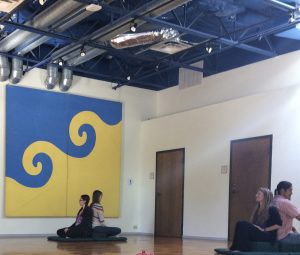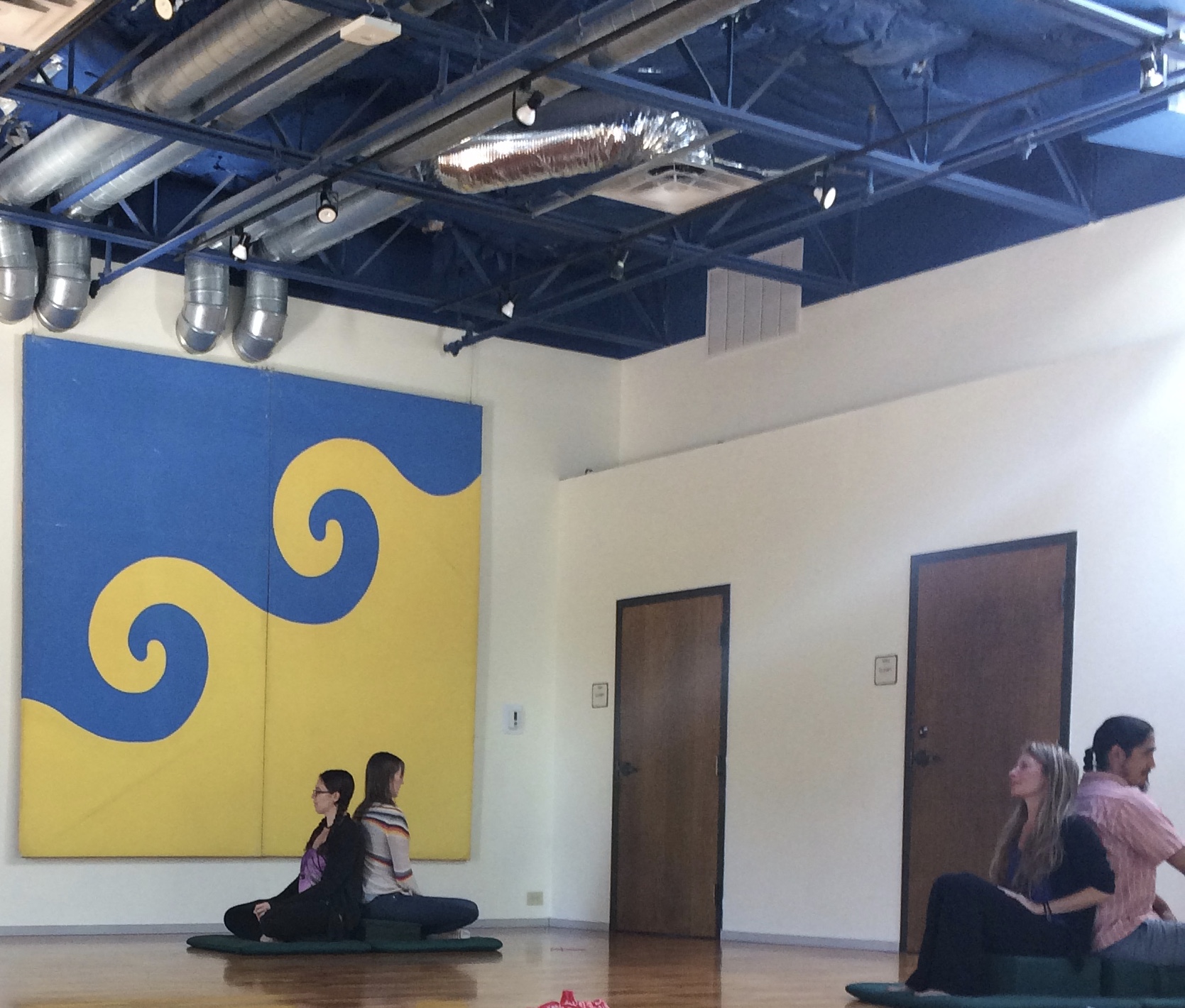Late Wednesday afternoons I teach. At least that’s been true for the past few years. Five years ago, I returned to the Naropa University class room, this time as an adjunct faculty instructor to teach a year long counseling skills class. Of course, when I was a student, working on my Masters degree in Transpersonal Counseling Psychology I was there weekly. It was a formative time. The community of staff, faculty and students impressed me.
Still, I remember the names and faces of most of my instructors. They were, at least 95% rock stars of their craft. Certainly this was true of Darian Gracen. She was the mystical yet ordinary person who taught my counseling skills class. She was widely seen as an excellent teacher and therapist who was informed by many sacred traditions including her background in social work. So, in my mind, there was some pressure to really deliver and offer something that was as useful as what I received.
Happily, teaching became part of my rhythm of life. Being there every week, working with the same group of beginning counselors was a highlight, challenge and joy. I miss the students and the setting!
Here are my favorite things about teaching at Naropa University, in Boulder, CO.
The Roots of Naropa
For 700 years, beginning in the fifth century, there was a Buddhist university, where people came together to learn, debate and exchange ideas. Nalanda was this place and it was steeped in the tradition of meditation, while training the intellect too. It inspired the vision and development of Naropa University, beginning with a series of summer seminars in 1974 in Boulder, CO. It was a gathering of forward thinkers interested in spirituality, psychology and the arts. Under the leadership of a Tibetan Buddhist monk turned teacher, Choygyam Trunga, those summer programs gave way to the University that exists today. The idea was that Buddhism would meet great American wisdom and “sparks would fly”, as Trunga said.
Staff and students alike are asked to learn and practice mindfulness awareness meditation. This ancient method that allows the mind to gather and settle. It has the effect of calming. Or at the very least, folks know how to pause, take a breath and then continue.
Naropa was founded with a vision of creating a learning environment that engages the whole person, body, mind and spirit, much like Nalanda of centuries past.
Waking Up
Naropa’s Graduate School Counseling Psychology knows that in addition to theoretical and ethical training there are a few things that make for a great therapist, including the ability to:
- Be present, grounded and centered while paying attention to the client.
- Connect with the other’s inner world and use words and actions that communicate that understanding.
- Work with yourself as a therapist, so that you are clear for your client, vs. projecting your issues on to them. Self-work is encouraged and required.
Whether or not students know it when they arrive, they are making a commitment to waking up. What do I mean? Much of what happens in a Naropa classroom is experiential learning. The theory is taught, and then it’s applied. When I teach, I design and offer exercises to help elucidate the points of the lesson. It’s “real-play” not role-playing.
People are asked to bring their true self to the material. Learning happens from the inside out. We ask people in the Naropa community to look at and question their thoughts, beliefs and programming, in order to get in touch with more authenticity. Sitting meditation practice is an aid, all along the way. It helps people learn to slow down, pause, reflect and contemplate.
Students tend to wholeheartedly bring themselves to class work. Consistently they show the willingness to reveal and stretch themselves in service of uncovering more of their own truth.
Since discussions grow out of the students’ personal experience they are rich and multi-dimensional.

Caring Interactions
Never before have I been part of a work culture with so much emotional intelligence. Naropa has a culture of kindness and it is evident in the way people empathically relate to one another. Even the people in IT have this skill. They will acknowledge frustrations at whatever the tech glitch might be before solving the problem. Believe me, this helps!
There is a sense of being in a cradle of loving kindness that is imprinted in the way business in conducted. It’s typical that deep relationships form and members of the Naropa community celebrate and mourn aspects of life together.
When difficult situations arise, people tend to come together, invoke mindfulness and approach coming up with a solution that considers all points of view. Certainly this was true in the Transpersonal Department within the Graduate School of Counseling Psychology at Naropa.
We know that in successful therapy it’s the relationship that is healing. In fact, that’s around 85% of what matters, with the modality being 15%. Naropa in general seems to know that, and gives attention to relationships in a way that makes it an incredibly satisfying community to be a member of.
Now, away from the Naropa campus, whenever I am a student or teacher I aim to invoke these three qualities in myself and environment because they’ve been so satisfying. My wish is that we could all have heart-centered communities that value the training of intellect and the inclusion of spirituality. I offer workshops and trainings inspired by what I love about Naropa teaching. If you are in a helping profession, especially counseling or psychotherapy and seek mentoring, please reach out.


2 thoughts on “3 Things I Love About Teaching at Naropa”
So well shared! I’m on the same train of the heart minded life. Love your presence and ability to share and bring others to their awakening! Keep teaching – your gifts shine!♥️
Judith, you are part of Naropa’s roots, and mine. Knowing you helps me grow into more of my own strength!